開催レポート > スペシャル・レポート
Symposium on Filipino Cinema
On 11 March 2016, a symposium on Filipino cinema was held at the National Museum of Art, Osaka in Nakanoshima.

Hosted by
- Center for Integrated Area Studies (CIAS), Kyoto University)![]()
- Asian Film Culture Research Center
- Osaka Executive Committee for the Promotion of Moving Image Culture (Osaka Asian Film Festival)
Co-hosted by
- National Museum of Art, Osaka![]()
The guests were Antoinette Jadaone, Dan Villegas and Jericho Rosales from competition entry "# WALANG FOREVER". Jadaone and Villegas are both active as directors and screenwriters, primarily working in the romantic comedy genre. Their hits include "BEAUTY IN A BOTTLE" (2014), "ENGLISH ONLY, PLEASE" (2014), "THAT THING CALLED TADHANA" ![]() (2015) and "THE BREAKUP PLAYLIST" (2015). Jericho Rosales is the film's popular male lead who is active in both commercial and independent movies.
(2015) and "THE BREAKUP PLAYLIST" (2015). Jericho Rosales is the film's popular male lead who is active in both commercial and independent movies.
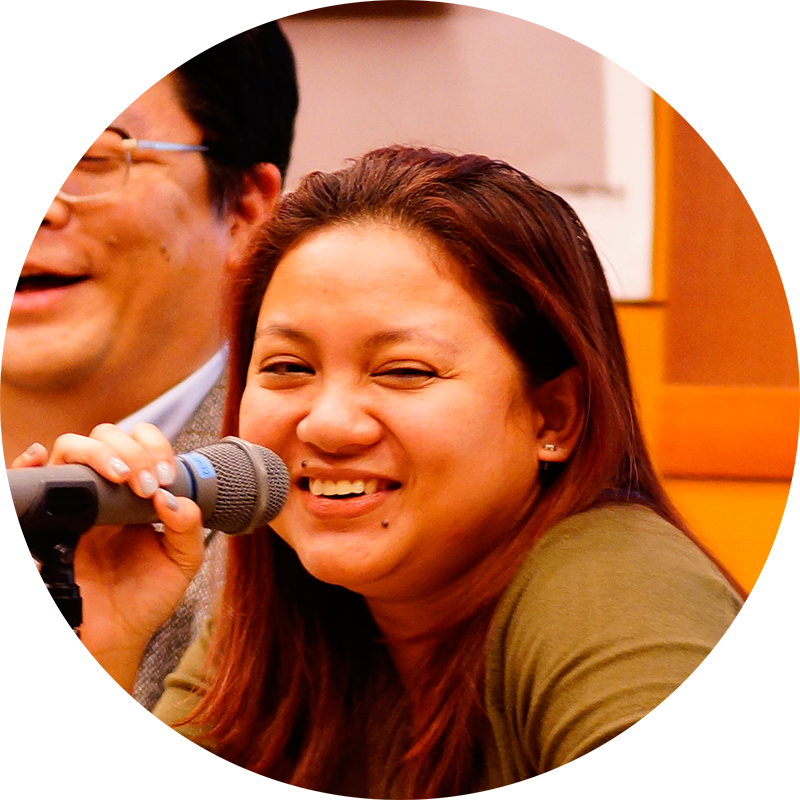
# How much are your films based on your real experiences?
Antoinette Jadaone: Most of my stories are based on my real life. Most writers start with something that has happened to them, or their friends, or their friends' friends. It should start from something real so that the scenes in the film are sincere and not far removed from real emotions.
# Like the character in "# WALANG FOREVER", you've personally struggled balancing your work and personal life?
Jadaone: No! I'm very lucky to be allowed me do my work without having to have to make compromises with my family or my relationships. It depends on every woman's situation how she handles that balance, but I'm lucky to have no such dilemma.
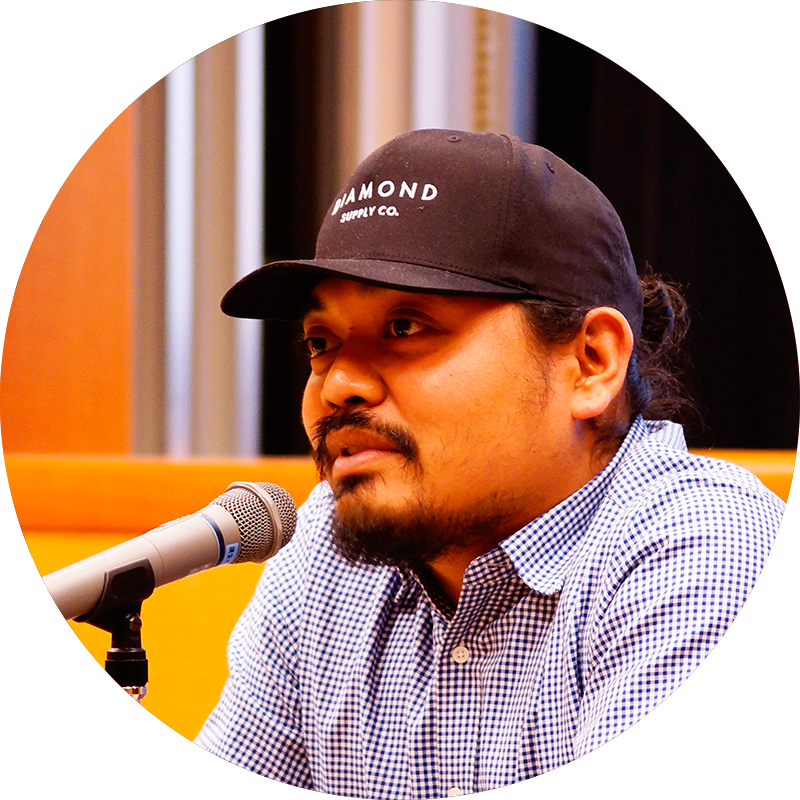
# It seems that men typically cry a lot in Filipino cinema?
Dan Villegas: Yes, they're predominantly love stories so men are shown at their darkest moment. When you make the script for the mainstream audience, the male character's darkest moment is an element that you must include. In # WALANG FOREVER, it's told from the perspective of the female lead, so perhaps less so.
# How different would the story be from the male lead's perspective?
Villegas: Filipinos are very emotional so seeing a man cry is not that weird in my opinion. When I watch films with my friends, most of us cry. It's a cultural thing.
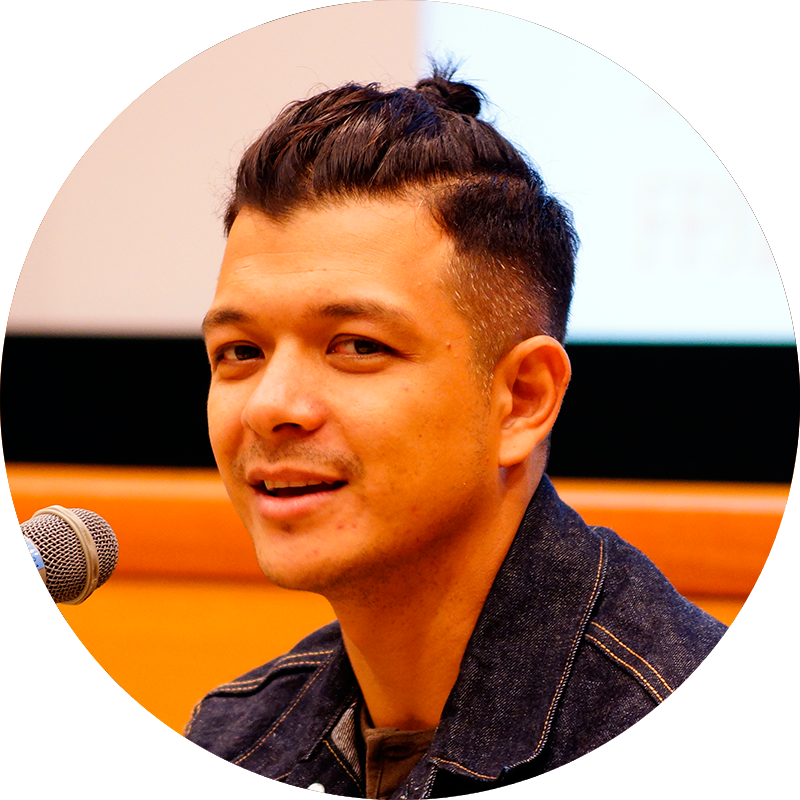
# Jericho, are you okay to cry in movies?
Jericho Rosales: I'm comfortable crying. But after doing so many TV series in which you see me weep, I hope to be able to do more films that show my macho side. I guess Filipinos are very much in touch with their emotions. And that is reflected in our movies. We share our culture within our films. It's a shame that we're known for crying, but that's just how it is.
# Are social issues more often handled by indie films?
Jadaone: Romantic comedy is the most popular, most watched, genre in the Philippines. The biggest film production company, Star Cinema, is known for producing at least one romantic comedy every month, or every two months, simply because it's the kind of genre that is sure to get an audience. For the producers, it doesn't need much promotion because there's always an audience.
# Would Filipino audiences not want to watch social issue films?
Jadaone: We're in an era of Philippines' cinema when there are a lot of films of different genres being made for different kinds of audiences: the romantic comedies, the comedies, the horrors, and the independent cinema. Most independent movies tackle social issues. But unfortunately, for one reason or another, these socially relevant films don't get enough theatres in the Philippines. So people don't have many options to watch them. Most theater managers would rather show comedies or romantic comedies because they have a sure audience. You can't blame them because it's a business and they need to recoup. But we are in the process of getting a wider range of different kinds of films in front of audiences, not just comedies, or romantic comedies.
# What is the secret to the quality of Filipino rom-coms?
Villegas: The industry is improving and I'm happy about that. That's probably because the market became saturated after a while, and everyone had to step up their game. As to the secret, we just put real stuff in our movies. For our film "THE BREAKUP PLAYLIST", as in the opening scene, Antoinette and I were once really fighting in the car about the air conditioning. Finally the moment ended up in the movie.
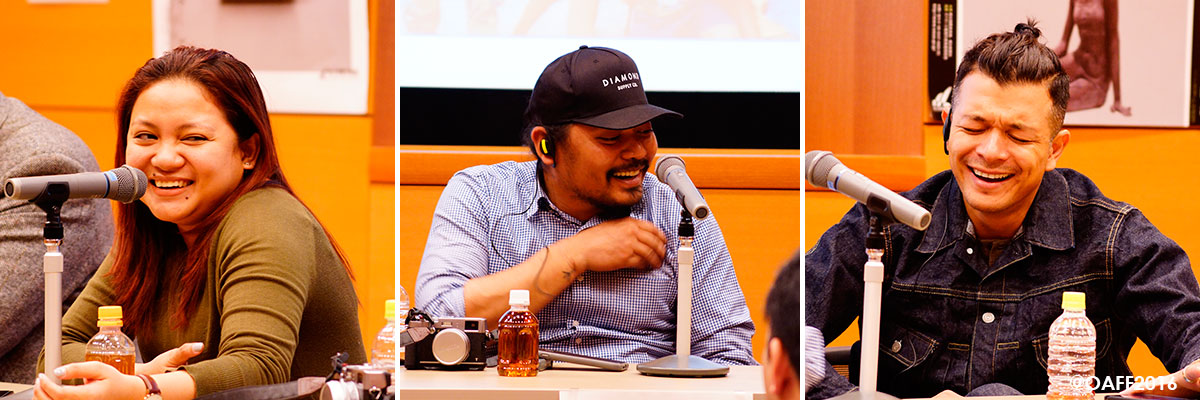
# What were the challenges breaking into the mainstream?
Jadaone: Dan and I, before directing these romantic comedies, worked for Star Cinema for 6-7 years. He was a director of photography and I was a script continuity girl and script supervisor. The person who gave us a break for our first mainstream film was an independent producer, Joji Alonso of Quantum Films. We need risk-taking producers like her to give new storytellers a chance to direct their own films. These small-time producers have very small budgets but they have a passion and a drive to produce films that wouldn't exist if we only had the big studios. After that, Star cinema <Star Cinema> hired us to direct some of their romantic comedies. But we started in independent cinema.
Villegas: In Star Cinema, there are many formulas, not just with the storytelling, but with the glossy look that the films share. But you have to see this from a business perspective: why fix something that's not broken. For me, trying to convince them to try something new is very hard. For "THE BREAKUP PLAYLIST", we tried to shoot it in a very moody way with dark cinematography. When I did that in the past, they would always call me to complain. It's really hard to change the system. You can't change everything at once, since you may shock the fan-base of Star Cinema. So it's more of a business conversation. I wish I was allowed to do whatever I wanted, but things are changing slowly in a positive direction.
# From an actor's perspective do you have a comment?
Rosales: After 20 years in the business, I have learnt to accept how things are. Every time I go surfing, I go with the wave, not against it. There are many things that you can achieve if you choose your battles, so I agree with my director and producer: You can't go against the entire industry. But there is progress and potential. It's also a matter of education. To make changes in the industry, educating people is key. In the Philippines, movies are escapism. Audiences don't want heavy experiences. We are a third world country and 150-180 pesos [for a ticket] is a lot of money for the audience. I acted in a film called BREAKAWAY [Alagwa] about human trafficking. The issue is a big problem in the Philippines, even if people don't know about it. It did the indie rounds [around the world] but it didn't make money at home. In the end of the day, you have to be patient and slowly "feed" the people.

# Jericho, what makes # WALANG FOREVER special to your mind?
Rosales:: # WALANG FOREVER is a hashtag that has traveled around the Philippines. It means "There is No Forever". In the Philippines, most people do not believe that there is forever in anything. Quantum Films decided to make a film about this, about two lovers who separate and find each other again, but not in an ideal situation. Even though the film is marketed as a romantic comedy, it comes from something deep. It's a subject that is potentially heavy but which is treated in a different way. 15 years ago, I did a couple of romantic comedies, including one about glowing mangoes: people believed that if the love is real the mangoes would glow! So this film is very different from the films that I used to do. It's more mature with a lot more reality, so it's more exciting for me. It requires a different kind of acting. I learnt that I'm really happy to do a film like this. Aside from # WALANG FOREVER giving me a trophy [at the Metro Manila Film Festival], the experience was a real eye-opener for me.
# The language in # WALANG FOREVER seems quite different from other films?
Jadaone: Taglish - a mix of English and Tagalog - is the common language used now by millennial. This is the language we chose for them because it is true to the characters' lives. In [my script of Jeffrety Jeturian's] *Ekstra*, for example, the lead characters are of a different social class and age, with a lead that is a middle-aged woman from a lower-class family, so the language there is different.
# The portrayal of the family in Filipino cinema?
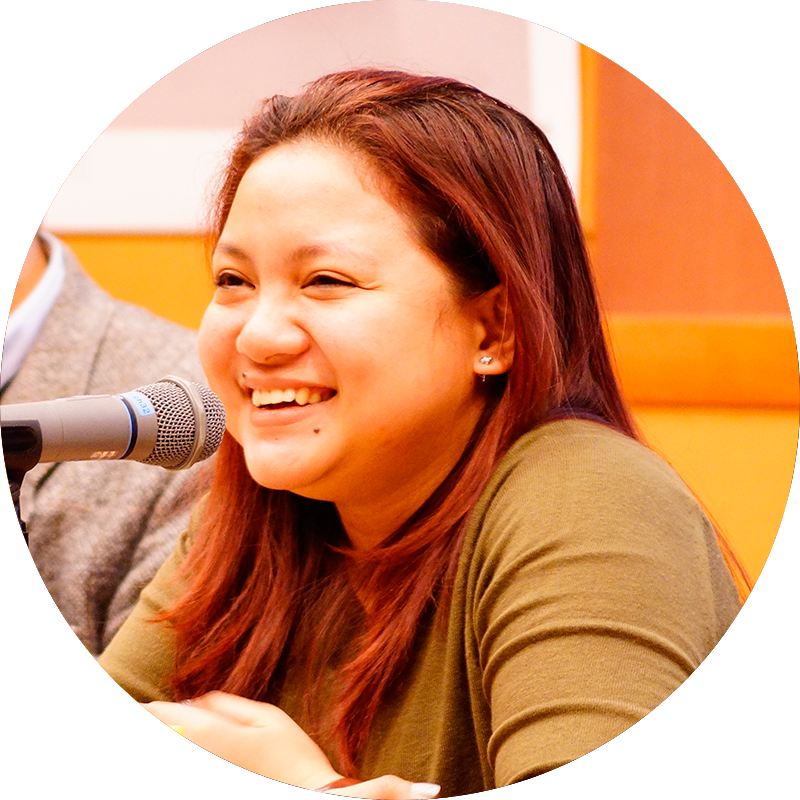
Jadaone: In Filipino rom-coms, the families of the main characters get involved. But in # WALANG FOREVER, we wanted to limit the participation of the families so we could be as intimate as possible, focusing on the love story of these two people. We were trying to change how romantic comedies are in the Philippines, with all the subplots that make us forget about the central story of two people in love.
Villegas: When you're in a relationship in the Philippines, you're in a relationship with your girlfriend's dad, her mom, her dog, her friends. Everyone has a say in your relationship. It's very complicated!
# What is the meaning to you of # WALANG FOREVER being at this year's Osaka Asian Film Festival?
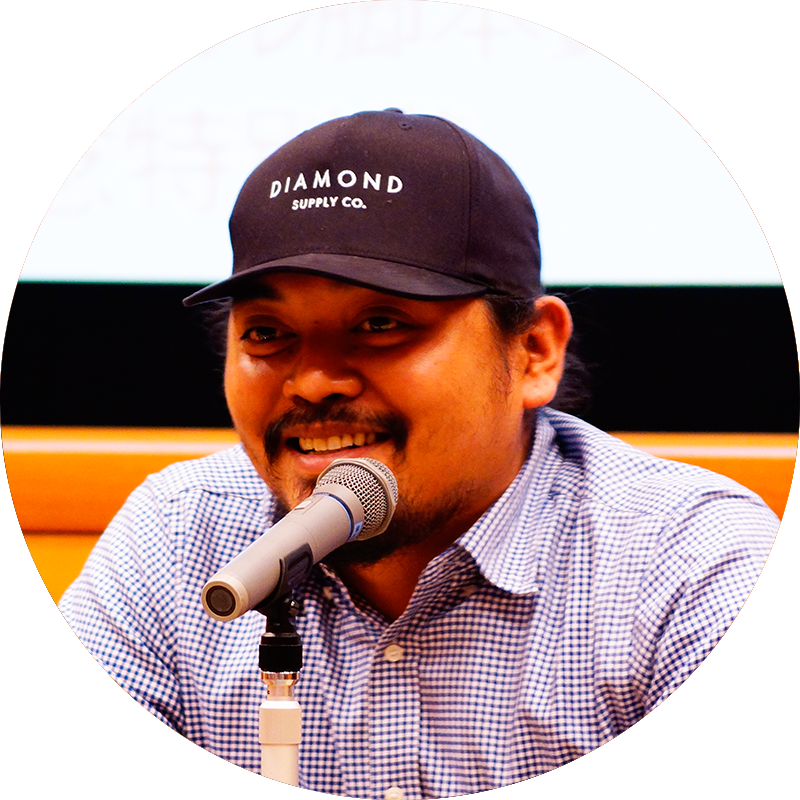
Villegas: Most Filipino films don't get shown at festivals abroad, especially romantic comedies. I attended this festival last year as the producer of "THAT THING CALLED TADHANA" ![]() . It's my first time to attend a festival as a film director so I'm really happy. I didn't really think that parts of the film would translate, but when I saw everyone crying at the end of my film yesterday I was so happy.
. It's my first time to attend a festival as a film director so I'm really happy. I didn't really think that parts of the film would translate, but when I saw everyone crying at the end of my film yesterday I was so happy.
Jadaone: I love going to film festivals. For one, it gives me that high after working so hard on a film. You get burned out making film and television in the Philippines, but at festivals I feel that the film world is where I belong.
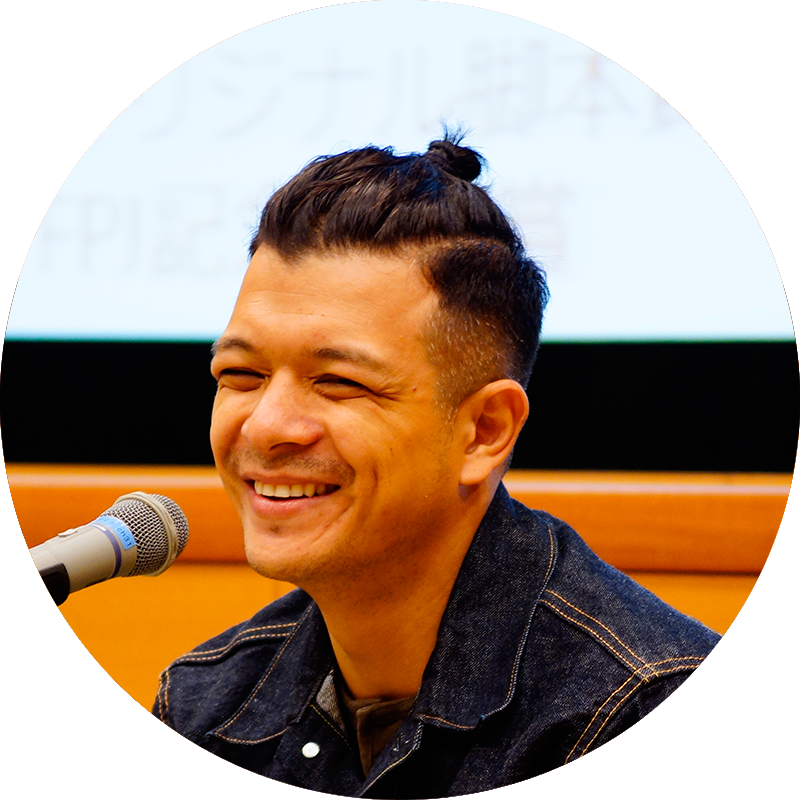
Rosales: Cinema is a powerful tool to introduce culture. I believe it's every artist's dream for his or her film to be shared with the whole world. To be invited here means a lot to us. We are very excited because this is proof that our film is special and that it belongs to not only us but also you. We hope that more of your Japanese countrymen get to see and enjoy our culture through our movies. We also watch a lot of Japanese films in the Philippines!
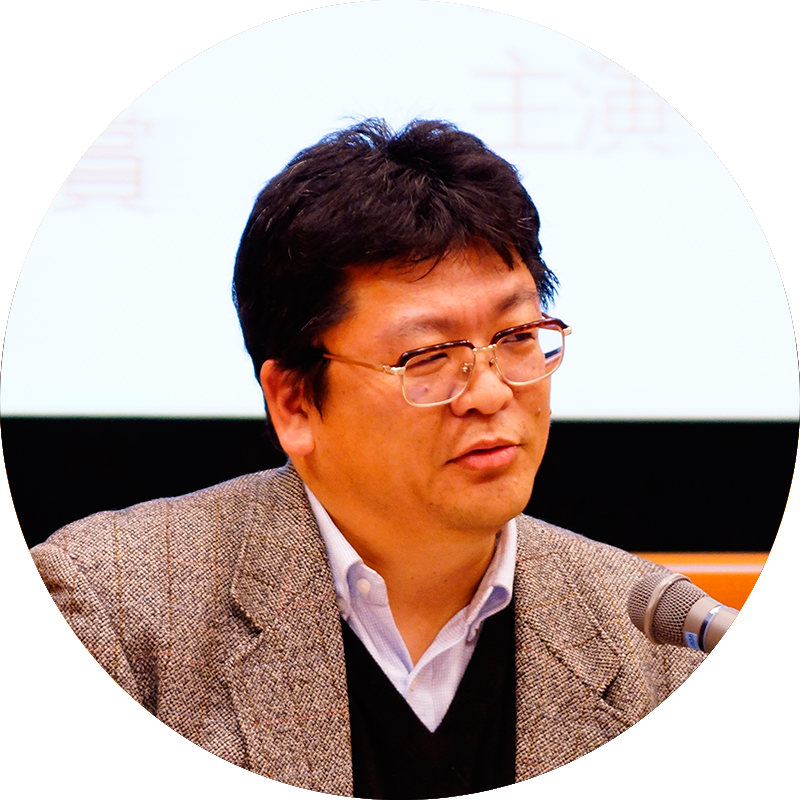
Moderator:
YAMAMOTO Hiroyuki
(CIAS Kyoto University)